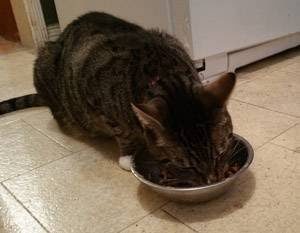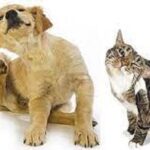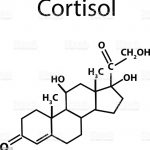The feline diabetes situation is different from the canine one. In dogs, the pancreas has been irreversibly damaged and insulin secretion is nonexistent The dog must have insulin injections if his body is to have any insulin at all. In cats, however, insulin secretion is relative and if the cat’s metabolism can be corrected before permanent damage sets in, diabetes mellitus can be reversible. In other words, in feline diabetes mellitus, insulin secretion is inadequate for the cat’s metabolic needs: inadequate is very different from nonexistent. This difference leads to a completely different dietary strategy in cats versus the high fiber diets usually recommended for dogs.
Cats become diabetic when their blood sugar levels are high for too long; in fact, a normal cat with a healthy pancreas will become diabetic if subjected to intravenous glucose infusions over time. In a more natural setting, the problem is a high-carbohydrate diet rather than an intravenous glucose infusion. When we eat carbohydrates and they enter our bodies, there is a rise in blood sugar level that persists for several hours. In cats, it is more like 8 to 12 hours, even longer if the cat is obese. All this circulating blood sugar stimulates insulin secretion so that all that sugar can be stored in the body. If the cat is snacking on dry food throughout the day, he may be secreting insulin throughout the day as well. This makes for a fat cat and a depleted pancreas.

It gets worse, obesity makes body tissues more resistant to the effects of insulin so that the pancreas must secrete even more insulin to put away the same amount of circulating sugar if the cat is overweight. While weight loss is reported in 70 percent of diabetic cats, 40% of diabetic cats are obese despite this.
We have mentioned that a diabetic cat can become normal if blood sugar levels are returned to normal and kept normal for a long enough time. This cannot usually be done without insulin injections but diet is important as well. We need to minimize the post-meal glucose tide that contributed to the cat’s diabetes and this is best done with a low-carbohydrate, high protein diet. If the cat is overweight, the amount should be tailored to induce weight loss. Kibbled diets require a minimum amount of carbohydrate to produce their shape and consistency but canned foods are not hampered by this carbohydrate limitation. This means that canned food more often fit the bill but there are several therapeutic dry diets made for diabetic cats should dry food be desired. The following guidelines have been suggested for diabetic cats:
- Obese cats require weight loss to achieve regulation. High protein/low carbohydrate diets are excellent for this purpose. Once an appropriate food has been selected, equal amounts should be fed in approximately three to four small meals daily if possible. Feeding in meals discourages snacking and helps with weight loss. It is best not to leave a food bowl out for snacking.
- Obese cats should not lose more than two percent of their body weight per week. If they do, they are at high risk for developing hepatic lipidosis, a form of liver failure. This is a serious complication and should be avoided. If your cat is losing weight too quickly, notify your veterinarian.
- The diet in question should be relatively high in arginine. Arginine is an amino acid that is stimulatory to the pancreatic beta cells that secrete insulin. Most meat-based proteins are high in arginine.
- The diet in question should be relatively high in L-carnitine, a biochemical which assists in transporting fats into cells to facilitate metabolism.
There are several therapeutic diets designed specifically to meet these guidelines. Ask your veterinarian which one is best for your cat.
Canned Foods
Most canned foods for cats are made to be adequately high in protein/low in carbohydrate. Here is a list should your cat find the therapeutic diets unacceptable.
Compare foods on the list for high protein content and low carbohydrate content.
Animal Hospital in Houston Heights
Urban Animal Veterinary Hospital
1327 Yale St
Houston, TX 77008
(713) 863-008


